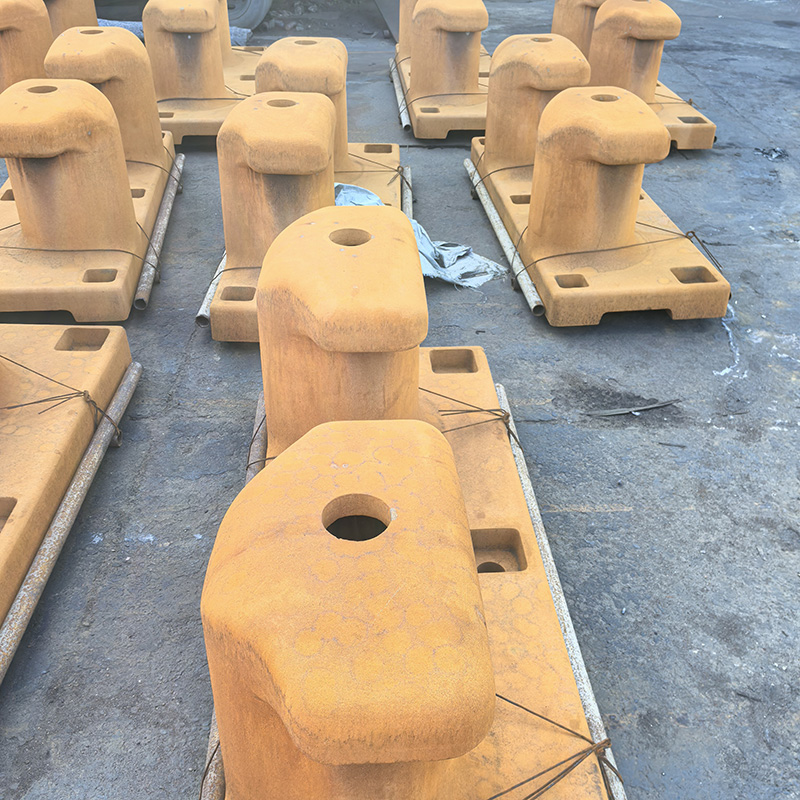Blog
Reliable Cast Iron Anchor Block Supplier for Global Projects
In the realm of global construction and engineering, the reliability of every component is paramount. Cast iron anchor blocks are fundamental elements in providing secure fastening and structural integrity. This article delves into the mechanics, performance, applications, materials, and economic aspects of these critical components, underscoring the importance of partnering with a reliable supplier.
1. Mechanics and Performance: The Backbone of Structural Integrity
Cast iron anchor blocks are engineered to withstand substantial mechanical stresses. Typically manufactured from high-grade materials like ductile iron (QT450), these blocks exhibit impressive tensile strength, often around 495 MPa-8. This high strength ensures exceptional load-bearing capacity, making them capable of resisting the powerful tensile and shear forces encountered in demanding applications. The design, often incorporating features like a flat anchorage system, ensures even distribution of stress, enhancing the overall stability and durability of the structure. Furthermore, surface treatments such as anti-corrosion protection are applied to ensure long-term performance and durability even in harsh environmental conditions-4-8.
2. Material Science: Choosing the Right Iron Alloy
The performance of an anchor block is largely dictated by its material. While various types of cast iron exist, ductile iron is frequently specified for anchor blocks in construction and prestressing applications due to its excellent combination of strength and durability-8. Other specialized cast irons like white heart malleable iron are known for their good weldability and are used in specific sectors like pipe fittings, highlighting the importance of material selection based on the end-use requirements-5. The composition is carefully controlled, with elements like carbon and silicon content optimized to achieve the desired mechanical properties and processing characteristics-5.
3. Diverse Applications Across Global Projects
The utility of cast iron anchor blocks spans a wide spectrum of global infrastructure projects. A primary application is in post-tensioning systems for concrete structures-4-8. They are crucial in bridges, industrial buildings, and large-scale commercial complexes, where they anchor prestressed strands to transfer loads and prevent cracking-4. Beyond construction, robust anchoring solutions are also critical in marine and heavy engineering, though it's important to distinguish land-based cast iron anchor blocks from the typically cast steel anchors used for ships-9.
4. Quality Assurance and Industry Compliance
A reliable supplier ensures that cast iron anchor blocks meet stringent international quality standards. This often includes certifications like ISO 9001 for quality management systems-7. Furthermore, compliance with specific industry norms and technical specifications is non-negotiable. Many manufacturers also subject their products to rigorous in-house testing, including mechanical property tests, to guarantee consistent performance and reliability-2.
5. Market and Value Proposition
The global market for heavy-duty anchoring solutions is substantial and growing, reflecting their critical role in infrastructure development-10. From a value perspective, cast iron anchor blocks offer a cost-effective solution without compromising on performance. Suppliers often provide comprehensive engineering support, including 3D modeling and overall solution design, adding significant value for global clients undertaking complex projects-4. The combination of competitive pricing, material longevity, and technical support delivers a compelling return on investment.
In conclusion, cast iron anchor blocks are vital, high-performance components in modern construction. Understanding their mechanics, material properties, and applications is key to selecting the right product. Partnering with a certified, experienced supplier who can provide quality-assured products and technical expertise is essential for the success and safety of any global project.

RELATED NEWS
CATEGORIES
LATEST NEWS
CONTACT US
Name: John Yu
Mobile:+86 15941574876
Tel:+86 15941574876
Whatsapp:+86 15941574876
Email:john_yu@metals-casting.com
Add:Wangjiapu Group, Xinan Village, Qianyang Town, Donggang City, Dandong City, Liaoning Province, China.
